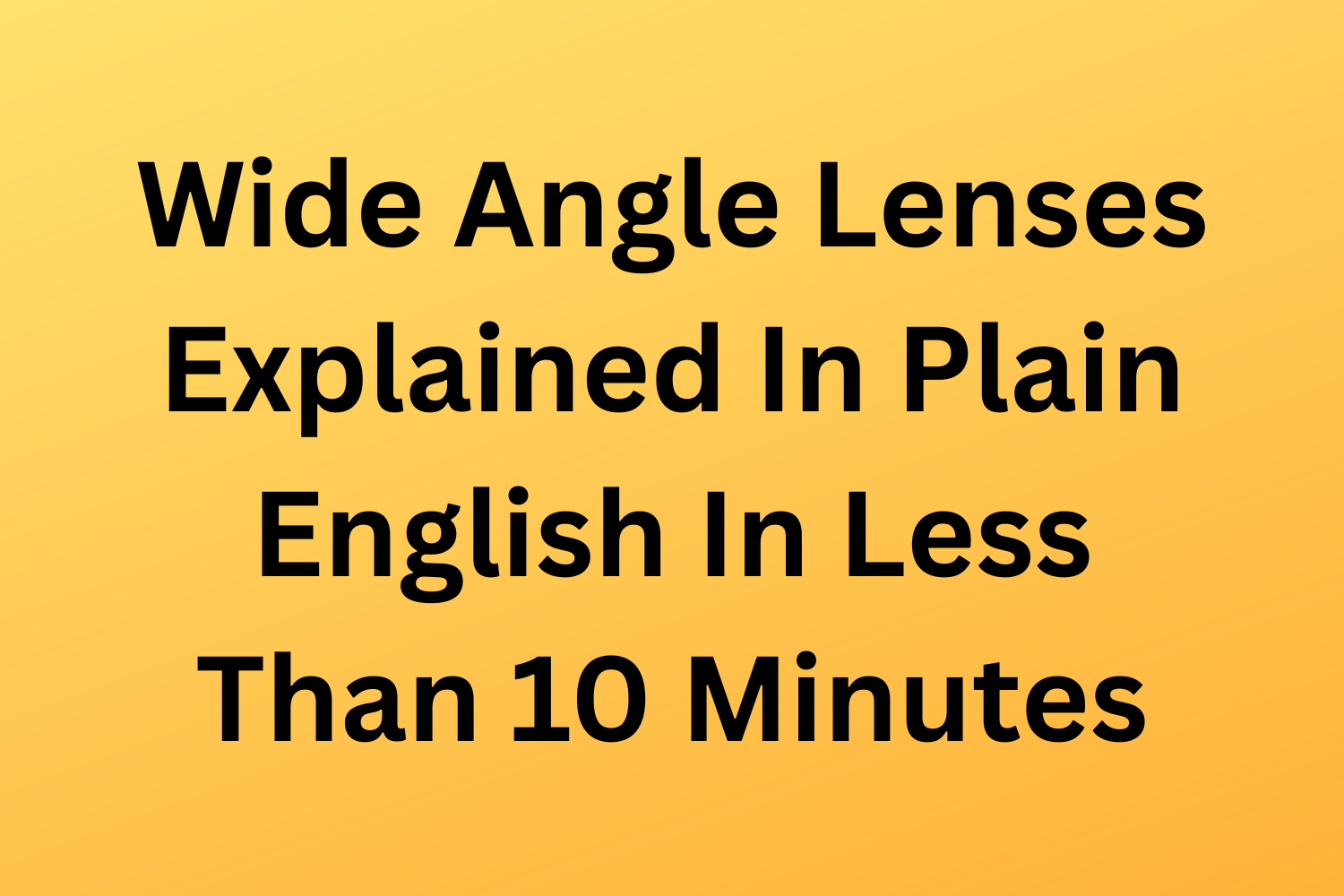
Wide Angle Lenses Explained In Plain English In Less Than 10 Minutes
A wide-angle lens offers a wider field of view than a standard lens. The focal length of a wide-angle lens is less than a standard lens, and less than 50mm on a full-frame camera. Wide-angle lenses are used to capture more of a scene and a wider view, and are used in a variety of photographic genres. The smaller the focal length number, the wider the field of view the lens provides.

What Are Standard Lenses? Let Me Tell You In Plain English
A standard lens in photography provides a field of view that is similar to that seen by the human eye. The focal length of a standard lens depends on the size of the camera sensor. On a full-frame camera, the standard lens has a 50mm focal length, on a cropped sensor camera 75-80mm focal length, and on a Micro Four Thirds camera a 100mm focal length. Standard lenses are fast, small, cheap, and lightweight, and are excellent, general-purpose lenses.
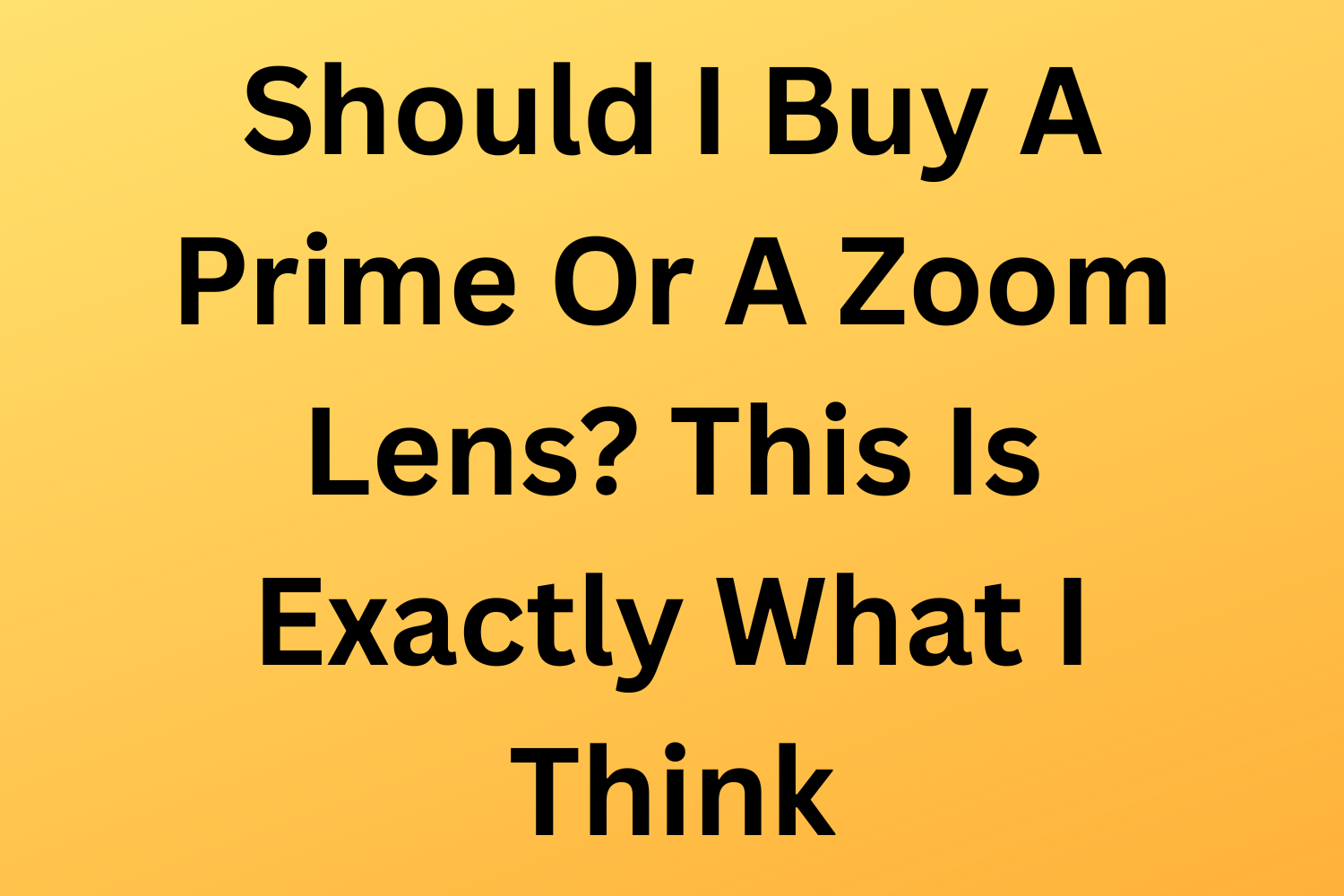
Should I Buy A Prime Or A Zoom Lens? This Is Exactly What I Think
Now, in the last two episodes, I've been talking about prime lenses and zoom lenses, and this is the end of that series. Next week, I'm going on to standard lenses, which I'm surprisingly excited to be talking about, actually.
So what I've got here are 10 things to think about before deciding whether to buy a prime lens or a zoom lens. Now then, this is 10 bullet points, there are no other notes.
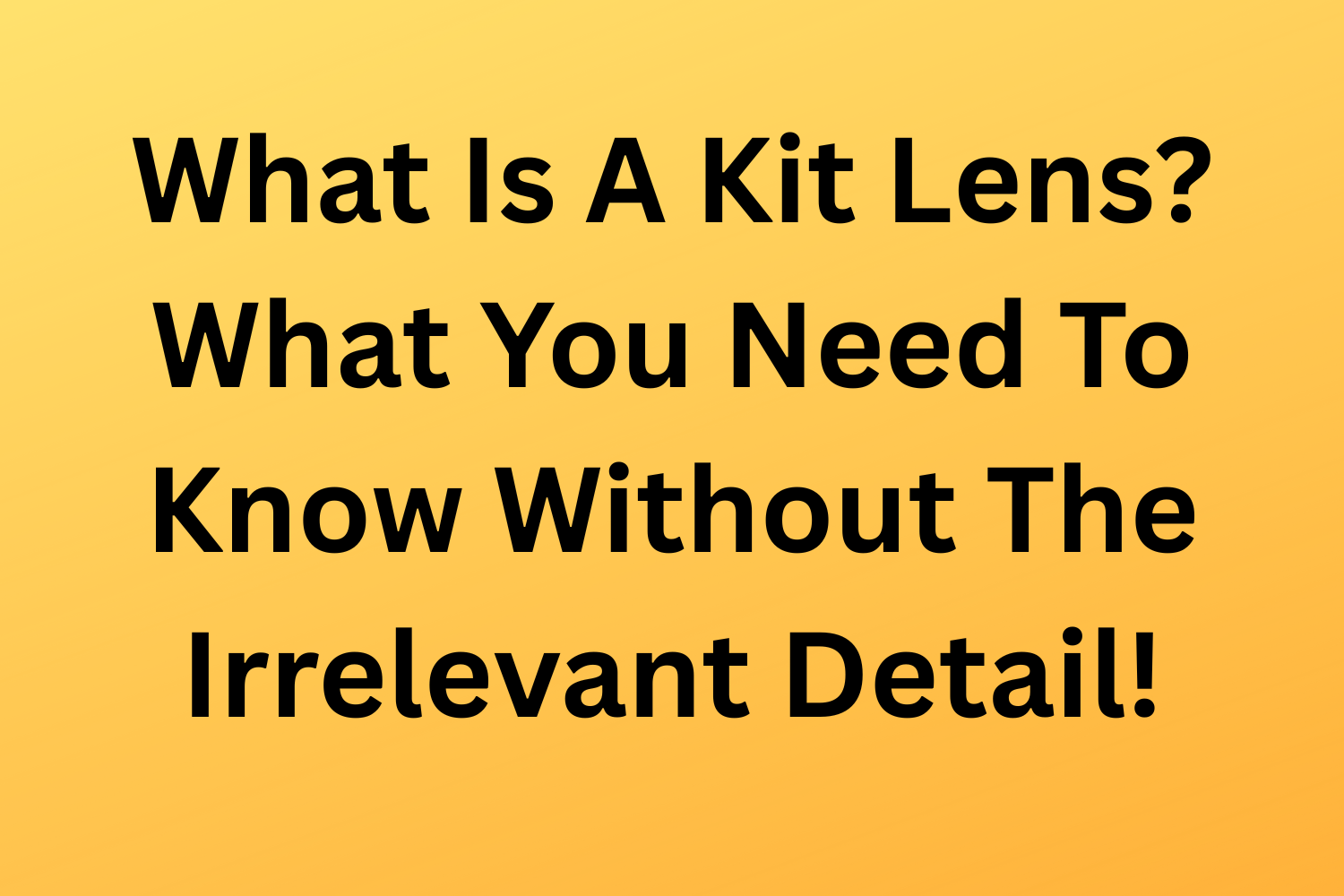
What Is A Kit Lens? What You Need To Know Without The Irrelevant Detail!
Right. A kit lens is a camera lens normally sold with a camera body as part of a starter kit. The most commonly sold kit lens is the 18-55mm lens, although other focal length kit lenses are sold. Kit lenses are at the lower end of the price and quality ranges and are aimed at new photographers looking to upgrade from phones and fixed-lens cameras.
There is no formal definition of what a kit lens is.
And that's the killer in all of this. There is no formal definition of what a kit lens is.
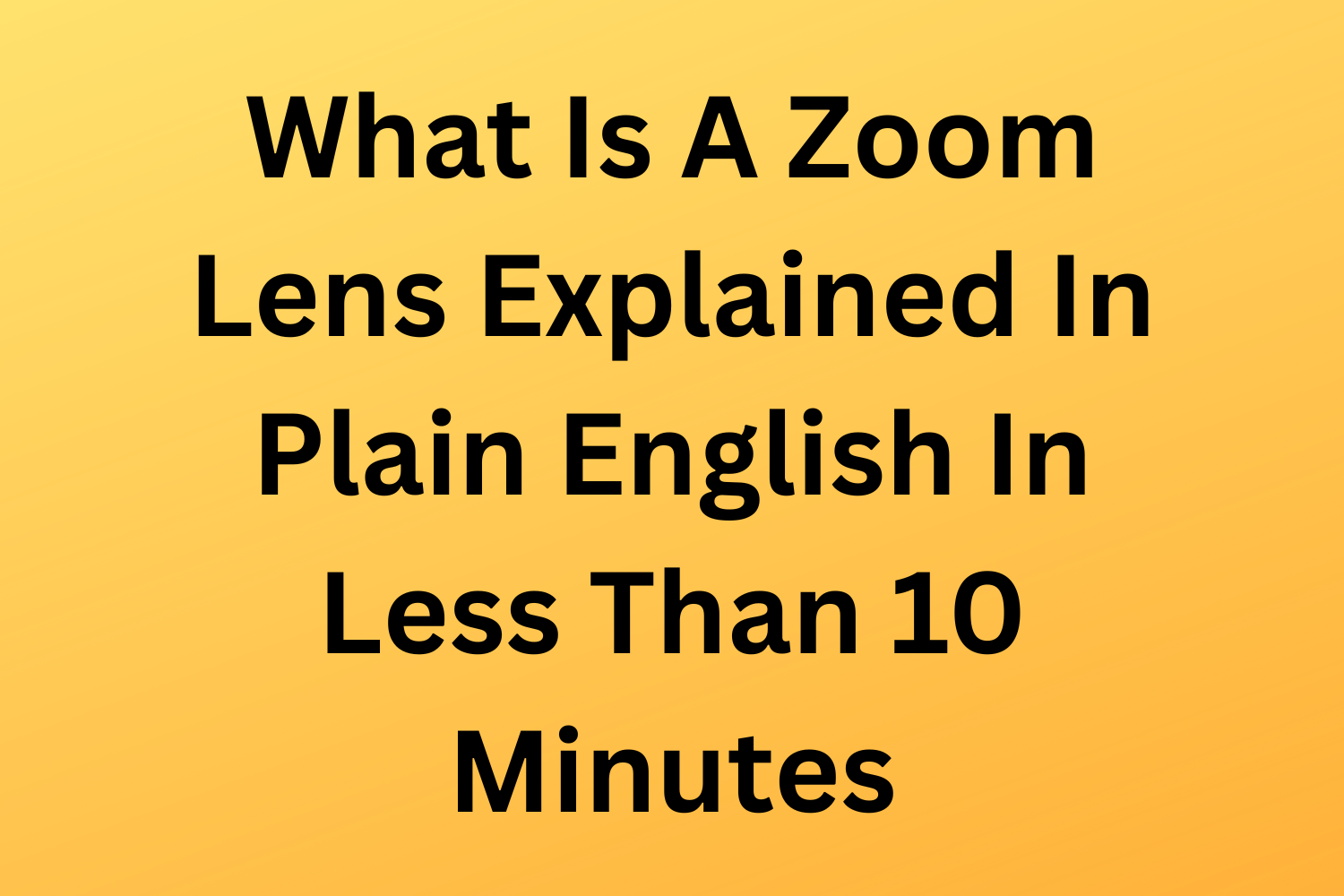
What Is A Zoom Lens Explained In Plain English In Less Than 10 Minutes
A zoom lens is a camera lens that has a variable focal length. Zoom lenses offer photographers greater flexibility over fixed or prime lenses. Zoom lenses enable photographers to carry fewer camera lenses due to the variable focal lengths, and change lenses less often. Zoom lenses can provide excellent-quality images.

What Is A Prime Lens Explained In Plain English In Less Than 10 Minutes
A prime lens is a lens that has a fixed focal length. Prime lenses are generally smaller, lighter, and have larger maximum apertures than zoom lenses. Prime lenses generally provide higher-quality images than zoom lenses, with fewer potential optical errors due to the lens being fixed.
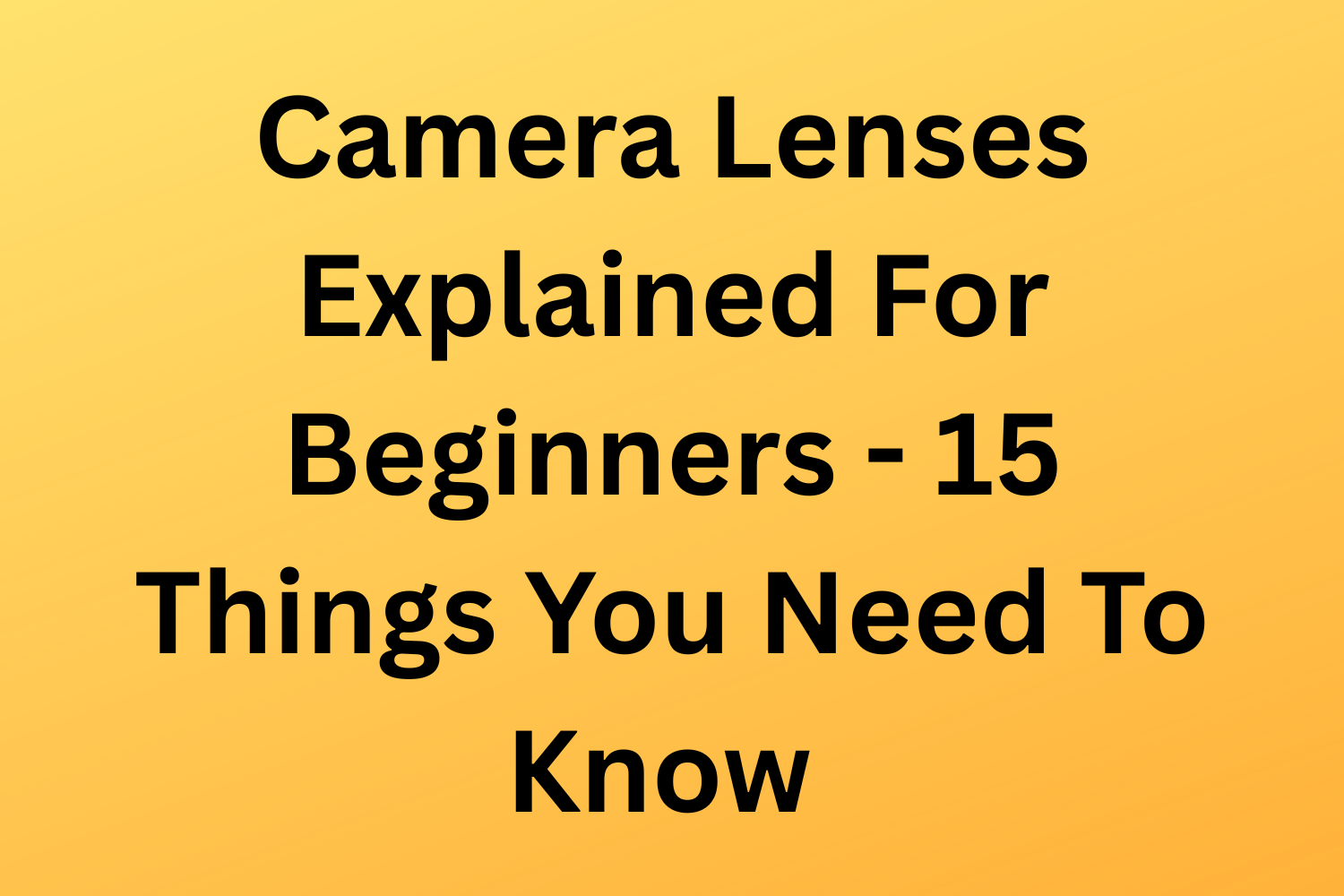
Camera Lenses Explained For Beginners - 15 Things You Need To Know
Camera lenses explained for beginners - 15 things you need to know. Hi, and welcome to Episode 57 of the Photography Explained Podcast. I'm Rick, and in each episode I will explain one photographic thing in plain English in less than 10 minutes (ish) without the irrelevant detail.
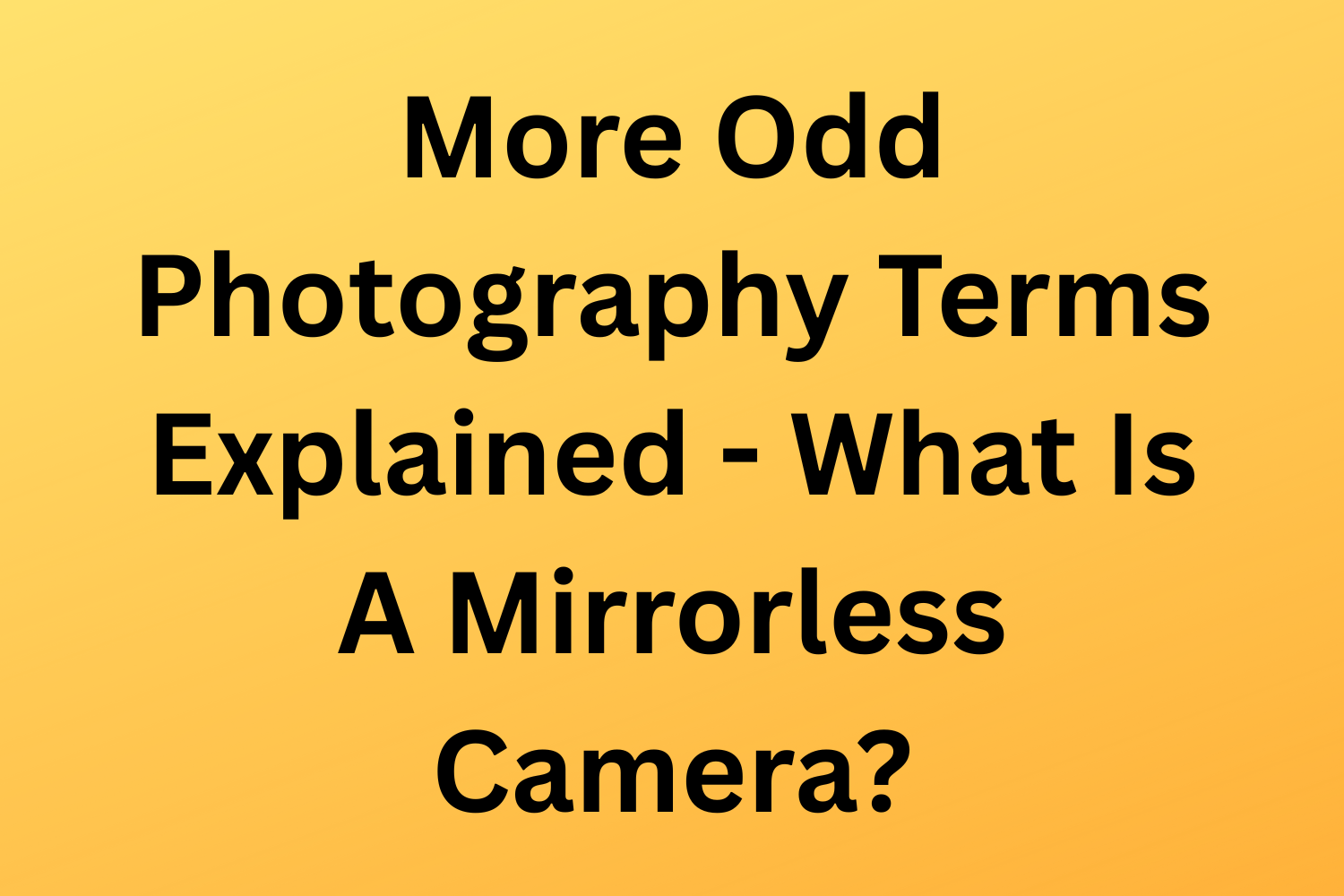
More Odd Photography Terms Explained - What Is A Mirrorless Camera?
A mirrorless camera has a sensor that is permanently exposed to light. When taking a photo a shutter covers the sensor and then opens and closes to expose the image for a time duration set by the shutter speed. The viewfinder on a mirrorless camera is electronic. Mirrorless cameras do not have mirrors or the pentaprism found on DSLR cameras so are smaller and lighter.
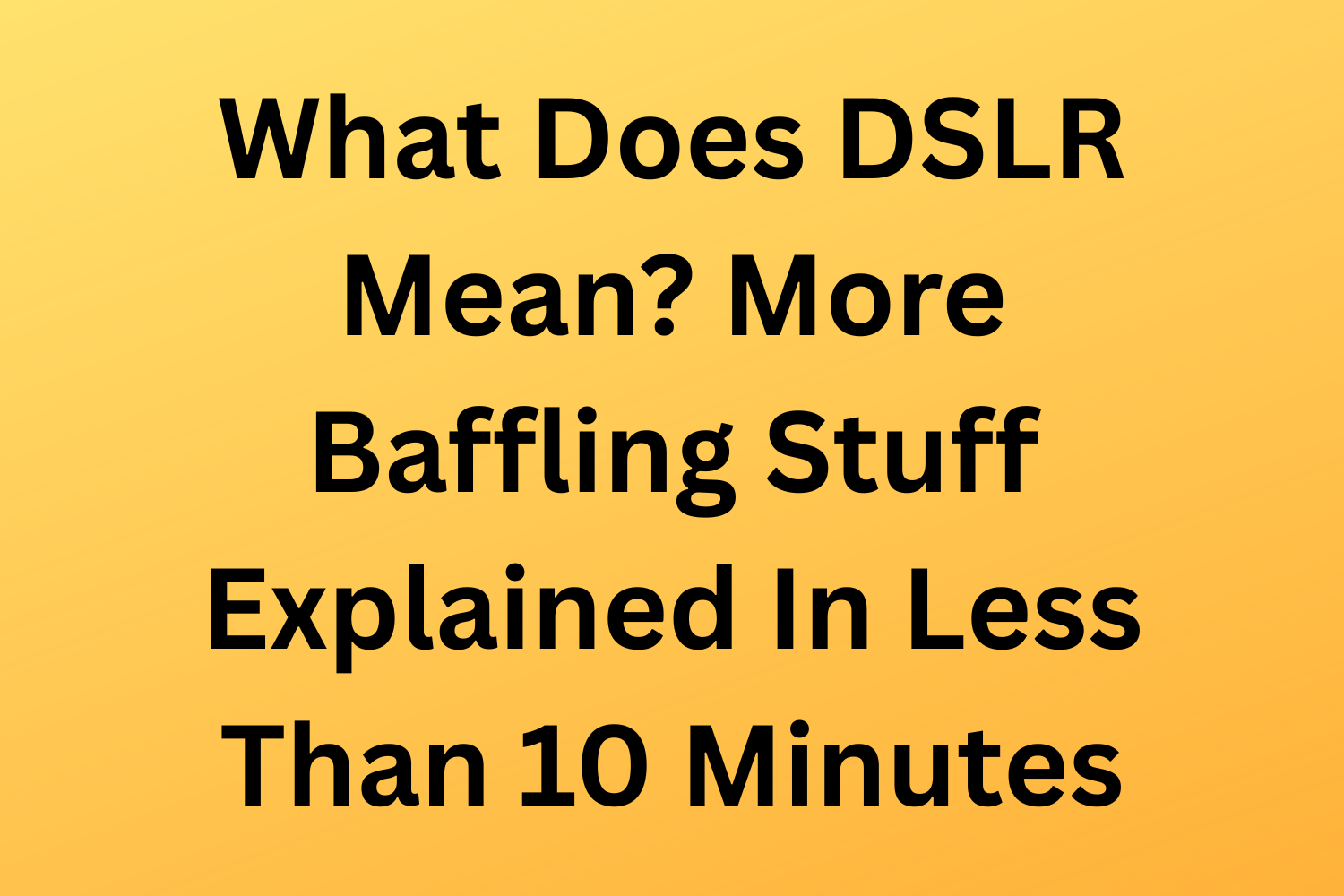
What Does DSLR Mean? More Baffling Stuff Explained In Less Than 10 Minutes
A DSLR is a digital single-lens reflex camera. Digital refers to the sensor in the camera, which takes digital images, not film. Single-lens is the (single) camera lens that you look through when you are taking a photo. Reflex is the pentaprism and mirror arrangement built into the camera, enabling you to look through the camera lens rather than a separate viewfinder.

Explained In Less Than 10 Minutes - What Is A Medium Format Camera?
A medium format camera is a camera with a sensor which is larger than a full-frame camera. A medium format camera takes photos with higher image quality, resolution, and detail. As well as having a larger sensor, the pixels are larger, meaning more light is captured giving increased tonal information. Medium format cameras capture a wider dynamic range than full-frame cameras.
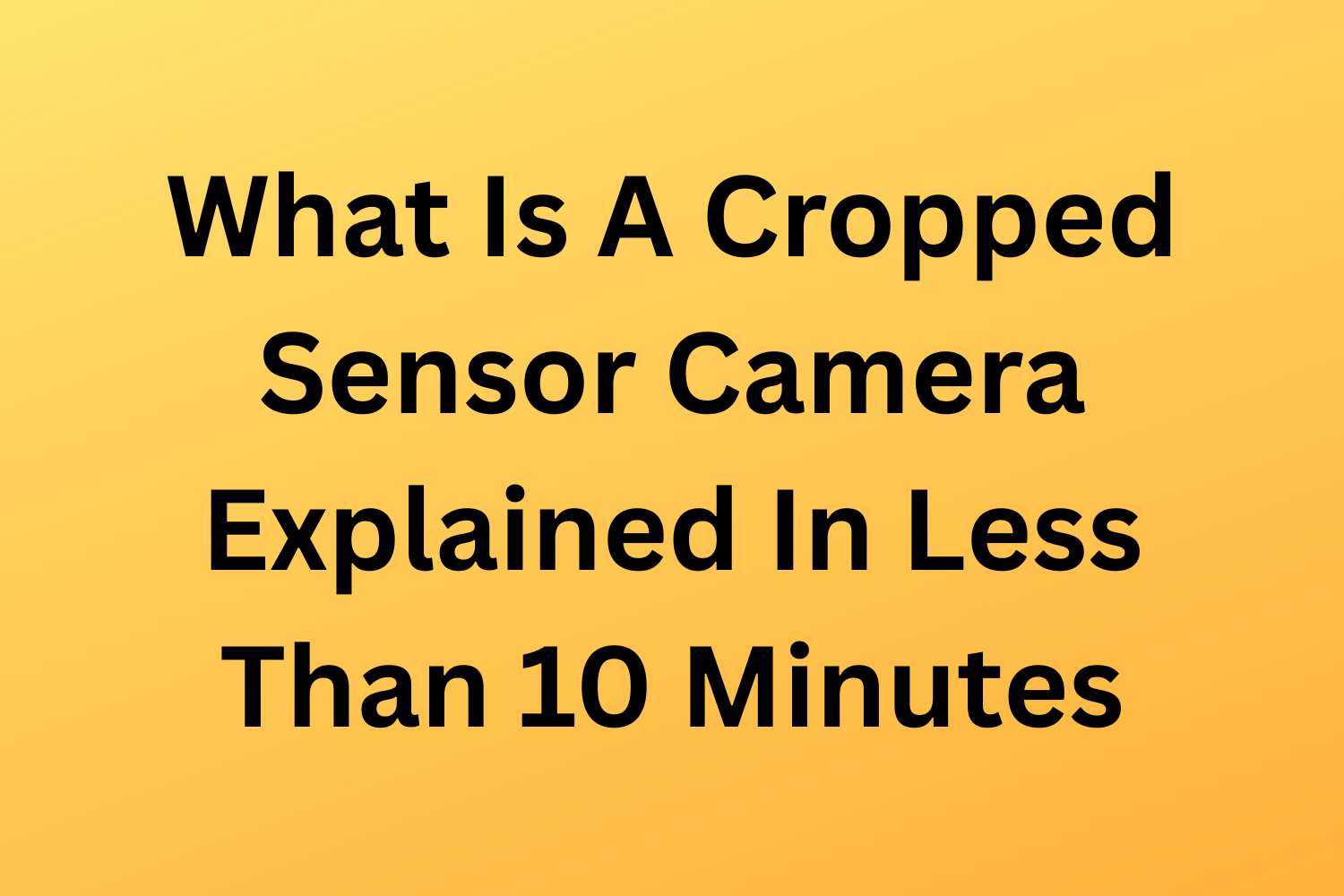
What Is A Cropped Sensor Camera Explained In Less Than 10 Minutes
A cropped sensor camera has a smaller sensor than a full-frame camera. Cropped sensor cameras are generally cheaper and smaller than full-frame cameras. Cropped sensor cameras have a crop factor applied to the focal length of any lens, meaning that 50mm on a full-frame camera is effectively circa 80mm on a cropped sensor camera. Cropped sensor cameras have a greater depth of field than full-frame cameras.
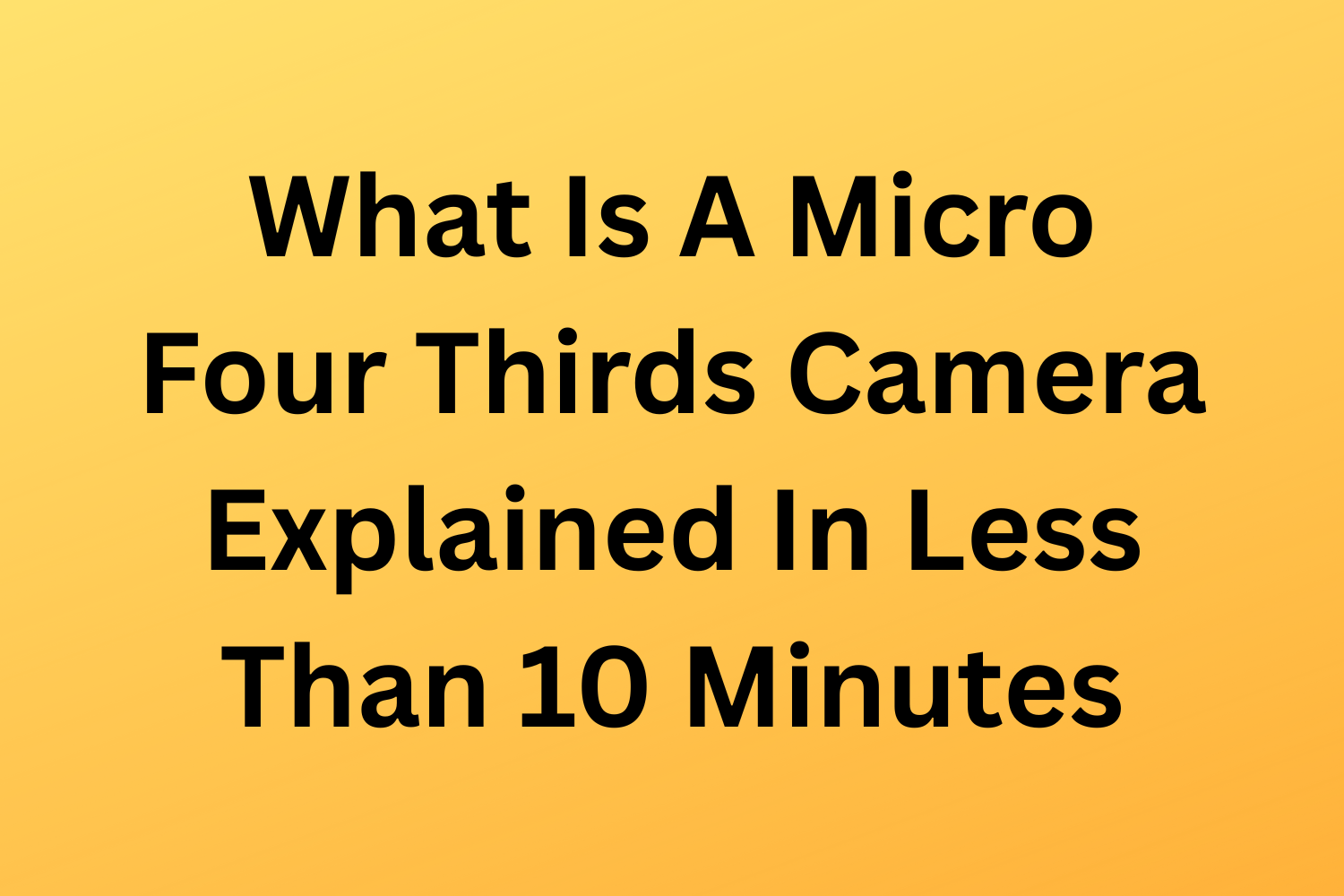
What Is A Micro Four Thirds Camera Explained In Less Than 10 Minutes
A Micro Four Thirds (MFT) camera is a mirrorless camera which has a smaller sensor size than full frame and cropped sensor cameras. The Micro Four Thirds system was created by Olympus and Panasonic and shares a common lens mount available to third-party manufacturers. MFT cameras are generally smaller and lighter than other mirrorless and DSLR cameras and are an excellent alternative, providing high-quality imagery with much smaller cameras and lenses.

What Is A Full Frame Camera?
A full-frame camera has a sensor size which is 36mm x 24mm. This is exactly the same size as the film in a 35mm camera. Typically, SLR cameras used 35mm film, so when digital cameras were introduced, the camera film was replaced with a sensor of the same dimensions.
Full-frame cameras used to be only DSLRs, but now you can get full-frame mirrorless cameras.